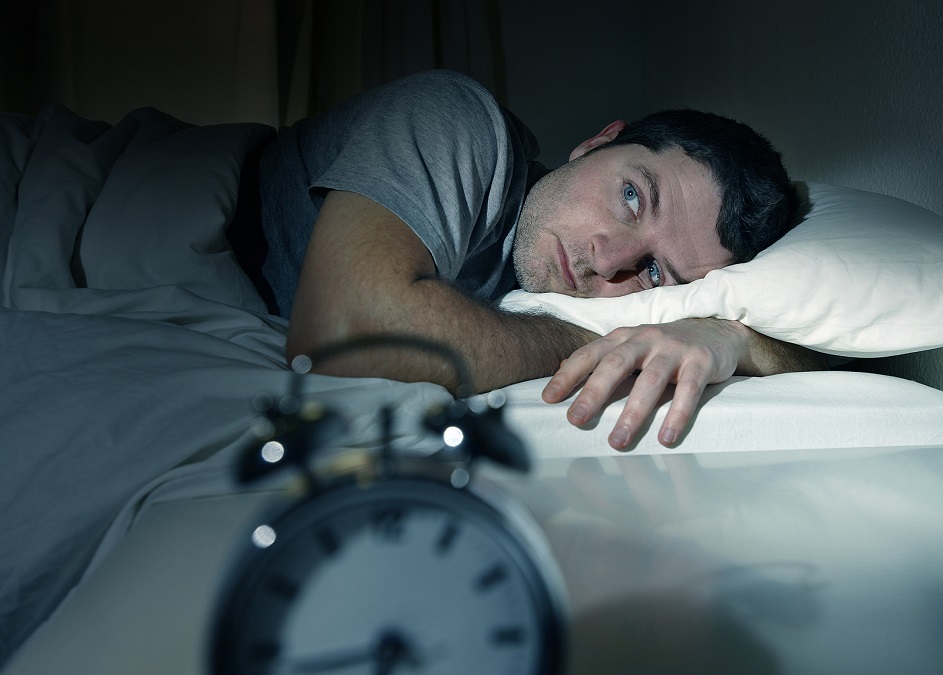 If you snore or suffer from sleep apnea, you’ve probably been told to lose weight.
If you snore or suffer from sleep apnea, you’ve probably been told to lose weight.
While that’s good advice for most of us, it won’t do anything for your sleep apnea, according to a new study published in eClinicalMedicine.
Because being overweight has nothing to do with snoring or sleep apnea.
There’s something else at play… and this something else is easy to treat naturally.
Fat deposits around the throat can restrict airflow.
Obese people also tend to have smaller lung volumes, which can further affect their ability to breathe properly during sleep.
This led to a widespread belief that maintaining a healthy weight was the main way to prevent sleep apnea.
To determine whether this is true, researchers conducted the largest study ever.
Their study followed over 12,800 adults from four community-based cohorts in the United States and Switzerland.
The participants had an average age of 67 years, with 56.2% having been diagnosed with sleep apnea.
This study defined sleep apnea as an Apnea-Hypopnea Index (AHI) of five or more events per hour.
The researchers also collected information regarding weight, body type, other health conditions, and demographic data like age and sex to compare the participants with and without sleep apnea.
Let’s check what they found:
-
• Only 31.5% of people with sleep apnea were obese, while 44.4% were overweight (BMI between 25 and 30 kg/m²), and 23.5% were of normal or underweight status (BMI under 25 kg/m²).
• These numbers suggest that more than half of the individuals with sleep apnea were not obese.
• Even among those with moderate-to-severe and severe sleep apnea, the majority were not obese. 60% of those with the former, and over 50% with the latter, did not meet the obesity criteria.
• Women with sleep apnea were more likely to be obese than men.
• Younger people below 65 years old were more likely to have obesity and sleep apnea than older adults, who had a lower prevalence of both.
• Obesity and overweight status did significantly increase sleep apnea risk. People with the former were nearly five times more likely to have it compared to normal-weight individuals, while those with the latter had 2.18 times higher odds.
So, while obesity increases sleep apnea risk, most adults with sleep apnea are not obese.
So, if not obesity, what’s the real cause of sleep apnea?
And more importantly, now that we’ve gotten this BS belief out of the way, what’s the solution to cure sleep apnea?
I’ve been helping men and women cure their sleep apnea for over 25 years.
The solution is simple.
You snore and stop breathing while sleeping because the muscles around your breathing passages are weak and collapse when you sleep.

 Overcoming IBD
Overcoming IBD Multiple Sclerosis
Multiple Sclerosis Banishing Bronchitis
Banishing Bronchitis Gum Disease Gone
Gum Disease Gone Overcoming Onychomycosis
Overcoming Onychomycosis Neuropathy No More
Neuropathy No More The Prostate Protocol
The Prostate Protocol Brain Booster
Brain Booster
 Ironbound
Ironbound
 Solution for Shingles
Solution for Shingles
 The Bone Density Solution
The Bone Density Solution
 The Ultimate Healing Protocol
The Ultimate Healing Protocol
 The Parkinson's Protocol
The Parkinson's Protocol
 The Chronic Kidney Disease Solution
The Chronic Kidney Disease Solution
 Overthrowing Anxiety
Overthrowing Anxiety The Fatty Liver Solution
The Fatty Liver Solution The Hypothyroidism Solution
The Hypothyroidism Solution
 The End of Gout
The End of Gout The Blood Pressure Program
The Blood Pressure Program
 The Oxigized Cholesterol Strategy
The Oxigized Cholesterol Strategy
 Stop Snoring And Sleep Apnea Program
Stop Snoring And Sleep Apnea Program
 The Arthritis Strategy
The Arthritis Strategy The Vertigo & Dizziness Program
The Vertigo & Dizziness Program The 3-Step Diabetes Strategy
The 3-Step Diabetes Strategy Hemorrhoids Healing Protocol
Hemorrhoids Healing Protocol The Erectile Dysfunction Master
The Erectile Dysfunction Master Weight Loss Breeze
Weight Loss Breeze The IBS Program
The IBS Program The Insomnia Program
The Insomnia Program The Migraine and Headache Program
The Migraine and Headache Program The Neck Pain Solution
The Neck Pain Solution The Menopause Solution
The Menopause Solution The Ejaculation Master
The Ejaculation Master The TMJ Solution
The TMJ Solution The Acid Reflux Solution
The Acid Reflux Solution The Fibromyalgia Solution
The Fibromyalgia Solution The Psoriasis Strategy
The Psoriasis Strategy